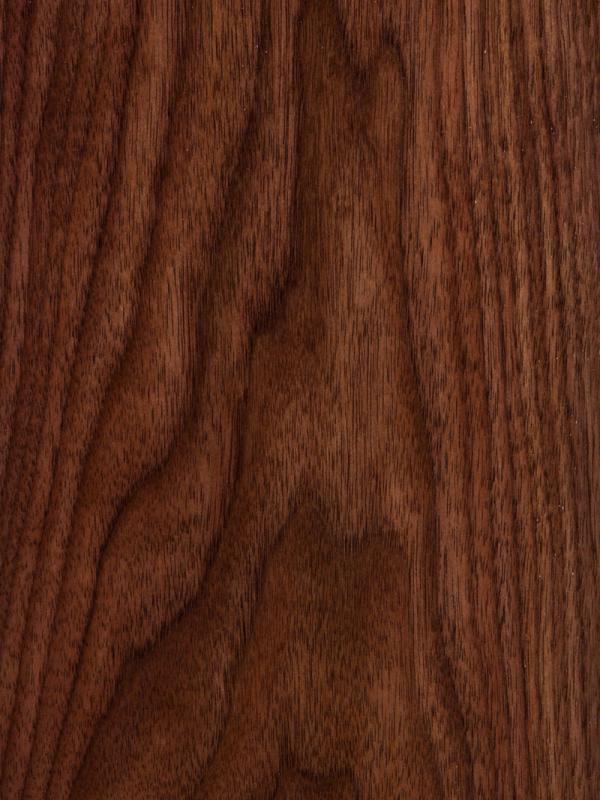
Family: Juglandaceae
Origin: It is native to the U.S. and southern Canada, though is grown throughout the world in parts of Asia, Europe, and South America.
Other Common Names: Black Walnut, English Walnut, American Walnut, Common Walnut
The Tree: This deciduous tree ranges from 30-130 feet with branches that can span almost as wide as it is tall. It is characterized by black, rouged bark, alternating feathery leaves, and round, single-seeded fruit.
Appearance: Walnut wood is a dark brown, with a straight, tight grain, though the sapwood is much lighter. Sometimes walnut has figured grain such as curly, crotch or burl.
Density: Walnut is a dense wood. The average reported specific gravity is .52 (ovendry weight/green volume), equal to an air-dried weight of 91 pcf. Janka hardness is 1,220 pounds of force.
Drying and Shrinkage: The average reported shrinkage value is 13.0% (volumetric). Once it is dried, there should be very little shrinkage, much less than other North American hardwoods.
Working Properties: Due to its straight grain, walnut is relatively easy to work with. Walnut sometimes has figured grain, which can cause difficulties to work with.
Durability: This is a durable hardwood.
Uses: Walnut wood is an excellent choice for furniture, cabinets, turned items, and intricate decor.
Availability: Walnut is a popular and available choice, though the price is sometimes higher than other domestic hardwoods.